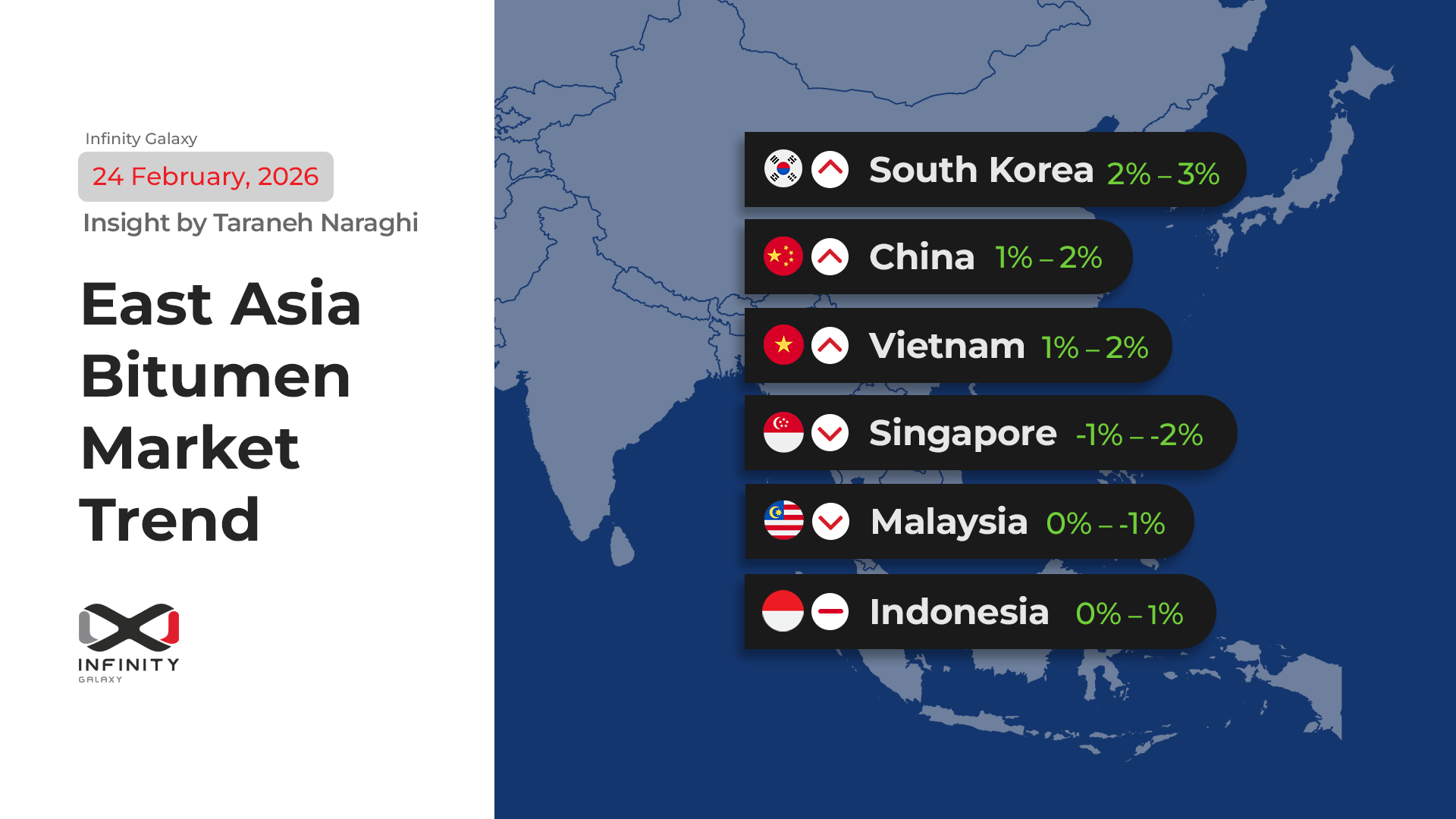Weekly Bitumen Report: Political Changes, Energy Imbalance, and Over Supply: Mixed Signals for the Bitumen Market

Last week, there were a lot of political and diplomatic changes in different parts of the world.
In the Middle East, Israel started a new, big military operation in the Gaza Strip. They said they will keep going until the area is “completely cleared.” These attacks have caused more worries around the world about the situation for people there and the stability of the area.
In Europe, Russia and Ukraine started peace talks in Istanbul, with Turkey mediating. Even though both sides said they wanted to solve the conflict through talking, they have broken the temporary ceasefire many times. So, there’s still a shadow of distrust between them during the negotiations.
In America, Donald Trump went on an important trip to the Middle East as part of his second term as president. During the trip, he said that some of the sanctions on Syria would be removed. Besides, the United States also signed economic deals worth over a trillion dollars with countries in the Persian Gulf area. These deals are mostly focused on energy, infrastructure, and security.
On the other hand, after months of tension, China and the U.S. said at a meeting that they’ve agreed to gradually reduce tariffs. However, this agreement hasn’t really affected the oil market yet. This is because people are still worried that the world economy might slow down and that demand from Asia might drop. So, the market hasn’t reacted much to this news.
In the energy market, the price of Brent crude oil was lower than the week before. This drop happened because the amount of crude oil stored in the U.S. grew more than expected. Also, important agencies like EIA and IEA lowered their predictions for how much global demand would grow.
At the same time, OPEC said they’ve lowered their prediction for how much oil countries outside of OPEC would supply. But in a different move, OPEC Plus announced in an official statement that they would increase their daily oil production by 411,000 barrels starting in June. This decision has increased concerns that the market might have too much supply again.
On Thursday, the price of Brent crude oil stayed around $64. The price of Singapore’s 180CST went up by $6 to $441. The prices of bitumen in Singapore and South Korea were $405 and $385, respectively. Bahrain bitumen was traded at $370, which is the same as it has been for two months. Meanwhile, the price of bitumen in Europe went down and was between $380 and $425.
In India, the price of bitumen dropped about 1.5$ on May 15, that can be attributed to the monsoon season which is coming soon and there are cash shortages. But if the rainy season starts early, prices might go down a bit in early June.
The situation in Iran is more complicated. The country has severe water shortages, energy imbalances, and frequent power outages. This has significantly slowed down bitumen production. There might be a shortage of vacuum bottom in the coming months. Also, there are a lot of requests for containers, and many containers were damaged in the Bandar Abbas port explosion. Because of this, shipping companies are giving fewer containers to exporters. These conditions will probably cause the price of bitumen in Iran to increase quickly. It’s likely that the supply situation in Iran right now won’t follow the price of oil or the ups and downs of other markets.
Currently, it’s recommended that everyone in the market work with suppliers who have a long and strong history and companies that can actually provide the materials.
You can check the Bitumen Price page on the Infinity Galaxy website to see prices in different regions: https://infinitygalaxy.org/bitumen-price-today/.
This article was prepared by Razieh Gilani, the export manager of Infinity Galaxy.






